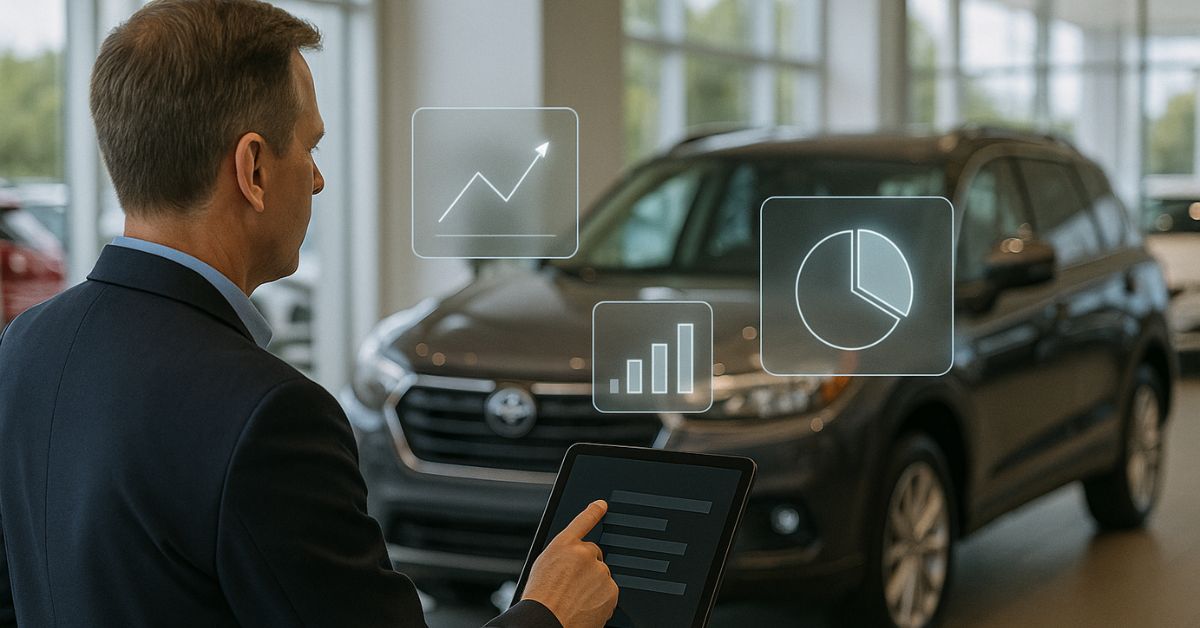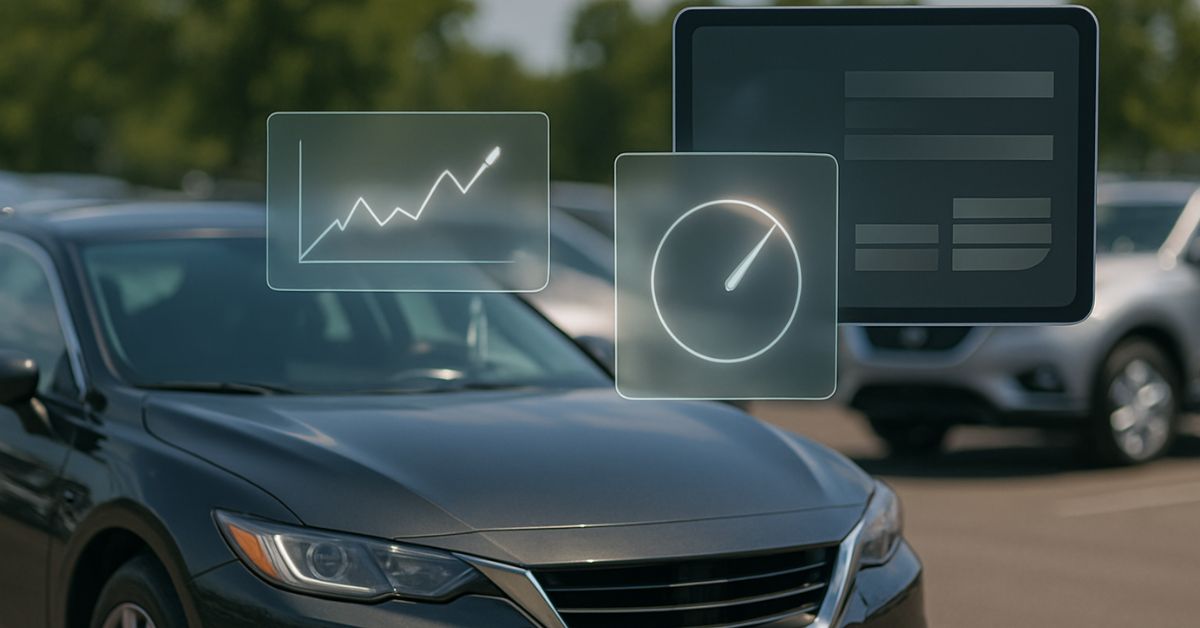Introduction to Choosing Used Car Dealership Software
Running a small used car dealership involves juggling multiple tasks, from managing inventory to tracking sales and keeping up with customer interactions. Used car dealership software for small dealers can simplify these operations by providing essential tools that streamline daily activities, help keep costs low, and support business growth.
In this guide, we’ll walk through the most important considerations when choosing software for a small used car dealership. We’ll cover the essential features to look for, factors that influence compatibility, pricing considerations, and tips for making the most out of your software investment.
Essential Features of Used Car Dealership Software
When evaluating dealership software, consider features that align with the unique needs of a small dealership. Here are the core functionalities that can improve efficiency, accuracy, and profitability:
1. Inventory Management
- Real-Time Tracking: Look for software that offers real-time inventory tracking, giving you instant updates on each vehicle’s status—whether it’s available, in reconditioning, or sold.
- Aging Inventory Alerts: Some systems can send alerts for vehicles that have been on the lot for too long, helping you make timely decisions on discounts or promotions to move aging inventory.
- VIN Scanning and Data Entry: VIN scanning capabilities make adding vehicles to your inventory easy and quick. This feature ensures accuracy and saves time by automating data entry.
2. Sales Management
- Customer and Deal Tracking: Software should allow you to track customer details, sales histories, and current deals in progress. This helps you stay organized and better understand customer buying patterns.
- Digital Deal Structuring: The ability to create digital deals, including financing and trade-ins, provides flexibility and convenience for both the dealership and customers.
- Payment Tracking and Financing Options: For dealers offering financing options, tracking down payments, financing terms, and payment schedules is essential for cash flow management.
3. Reporting and Analytics
- Sales Performance Metrics: Sales tracking is crucial for understanding your dealership’s success. Look for software that provides metrics on monthly sales, top-selling models, and average profit margins.
- Inventory Turnover Reports: Inventory reports can reveal how long vehicles are on the lot, helping you make data-driven decisions on stocking and pricing strategies.
- Customer Insights: Analytics on customer demographics, buying trends, and lead sources can help you tailor your marketing and sales efforts to improve conversions.
4. Accounting and Expense Tracking
- Vehicle Expense Tracking: Track expenses associated with each vehicle, including purchase price, repairs, and reconditioning costs. This helps determine the true profit margin for each sale.
- Integration with Accounting Tools: Software that integrates with accounting tools (like QuickBooks) simplifies tracking expenses, managing payroll, and preparing for tax season.
- Cost Analysis by Vehicle Type: Many software options offer reporting on costs by vehicle type, so you can see which categories are most profitable and plan inventory purchases accordingly.
5. Customer Management (CRM)
- Lead Management: Track leads and their progress in the sales funnel. This helps you identify high-potential leads and target them effectively with follow-up calls or emails.
- Communication History: Keep a record of all communications with customers, helping you maintain consistent follow-ups and personalized service.
- Automated Follow-Ups: Some CRMs allow automated reminders for follow-ups, helping you stay connected with potential buyers and improve lead conversion rates.
Evaluating Software Compatibility with Your Dealership’s Needs
Small used car dealerships often have different requirements compared to larger franchise dealerships, so it’s essential to find software that aligns with your specific needs. Here are some key factors to consider:
1. User-Friendliness
- Look for software with a user-friendly interface that’s easy to learn and navigate, minimizing the time needed for training. This is especially important for smaller teams where staff need to use the software independently.
2. Integration with Existing Tools
- Consider software that integrates with other essential dealership tools, such as accounting software, inventory management systems, and CRM platforms. Integration reduces duplicate data entry, ensures consistent data across platforms, and improves efficiency.
3. Scalability
- If your dealership has plans for growth, choose software that can scale with your business. Some solutions offer additional modules or features that can be activated as your business expands, making it easy to adapt without needing to switch systems.
4. Mobile Accessibility
- Mobile-friendly software is becoming increasingly important, especially for dealers who need on-the-go access to inventory, sales, and customer information. Mobile access allows you to make updates and check information from your smartphone or tablet, increasing flexibility.
Pricing Structures and Considerations
Understanding the pricing models of dealership software is essential for making a cost-effective decision. Here are common pricing structures and tips for small dealerships to manage costs:
1. Subscription-Based Pricing
- Many dealership software solutions offer monthly or annual subscription plans based on the features you select. Subscription-based pricing provides flexibility and usually includes updates and support. However, the cost may increase as you add more features or users.
2. Per-User Licensing
- Some systems charge per user, making it ideal for smaller dealerships with a limited team. For example, if your dealership only needs one or two users, a per-user license may be more affordable than an all-inclusive subscription plan.
3. Feature-Based Pricing Tiers
- Software providers often offer tiered plans, with different feature sets at each level. Start with a basic plan to keep costs low, then upgrade to higher tiers as your dealership’s needs grow. Make sure the base tier includes essential features like inventory management and sales tracking.
4. Free and Low-Cost Options
- Several dealership software providers offer free or low-cost versions with limited functionality. These can be great starting points for small dealerships, especially if you’re primarily focused on inventory management and basic sales tracking. However, as your business grows, a paid version may be necessary for additional features and support.
5. Long-Term ROI
- While software can be a significant upfront investment, consider the long-term ROI. A well-chosen software solution can streamline operations, reduce errors, and improve sales, ultimately boosting profitability and paying for itself over time.
Top Software Recommendations for Small Used Car Dealers
Here are some popular software options that cater to the needs of small used car dealerships:
1. DealerCenter
- Features: Inventory management, customer and sales tracking, digital deal structuring.
- Best For: Small dealerships looking for an all-in-one DMS with flexible pricing plans.
- Pricing: Tiered subscription plans with feature-based pricing.
2. Carketa Dealership Tools
- Features: VIN scanning, inventory management, appraisal extension, market insights, and condition reports.
- Best For: Small and used car dealerships that need comprehensive tools for inventory management, appraisals, and data-driven decision-making, with options that suit budget-conscious operations.
- Overview: Carketa offers a range of tools tailored to help used car dealerships streamline their operations.
- VIN Scanner: This mobile-friendly tool allows dealers to quickly scan VINs and upload vehicle information, making it easy to manage and update inventory in real-time. Ideal for dealers on the go, the VIN scanner ensures data accuracy and saves time by automating vehicle data entry.
- Appraisal Chrome Extension: Carketa’s appraisal extension provides market data and pricing insights, allowing dealers to assess trade-in values and potential acquisitions. By comparing similar vehicles and accessing up-to-date market information, dealers can make data-driven pricing decisions quickly, whether at auctions or on the lot.
- Market Insights and Competitive Analytics: With powerful analytics, Carketa’s tools offer dealers a competitive edge by providing real-time market trends, pricing benchmarks, and demand insights. This data helps dealerships stay competitive by setting optimal pricing and making informed purchasing decisions.
- Condition Reports: Carketa’s condition reports enable dealerships to evaluate each vehicle’s condition comprehensively. This feature supports transparency for customers and improves the accuracy of appraisals by documenting each vehicle’s state before sale or acquisition.
- Pricing: Carketa offers flexible pricing based on the tools needed, making it an accessible choice for small dealerships focused on growth and efficiency.
3. EverLogic
- Features: QuickBooks integration, inventory management, expense tracking.
- Best For: Dealerships using QuickBooks who need a DMS solution with accounting integration.
- Pricing: Monthly subscription with QuickBooks integration.
4. LotWizard Pro
- Features: Inventory tracking, sales and lead management, expense reporting.
- Best For: Small used car dealerships focused on comprehensive inventory and sales management.
- Pricing: Affordable monthly plans tailored to small dealerships.
Making the Most Out of Your Dealership Software Investment
Once you’ve selected your dealership software, it’s essential to maximize its potential. Here are some best practices to help your team get the most value out of the software:
- Set Up Regular Training Sessions: Train your team thoroughly on using the software, including new features as they’re released, to ensure everyone is comfortable and efficient.
- Customize Your Dashboard: Most dealership software allows for dashboard customization. Set up your dashboard to display key metrics like sales, inventory status, and recent customer interactions.
- Use Reporting Tools for Data-Driven Decisions: Take advantage of reporting and analytics to gain insights on inventory turnover, profit margins, and customer trends. Use these insights to make informed decisions about stocking, marketing, and sales strategies.
- Take Advantage of Customer Support: Most software providers offer customer support or training resources. Reach out to support for assistance, troubleshooting, or learning about new features to keep your dealership running smoothly.
Conclusion: Choosing the Right Used Car Dealership Software for Small Dealers
Selecting the right software can make a tremendous difference in your dealership’s efficiency, profitability, and growth potential. For small used car dealerships, it’s essential to prioritize software with inventory tracking, sales management, and reporting features that meet your unique needs. By considering factors like compatibility, scalability, and cost, you can find a software solution that fits your budget and helps streamline your operations.
Explore related articles to learn more about software solutions for car dealerships:






